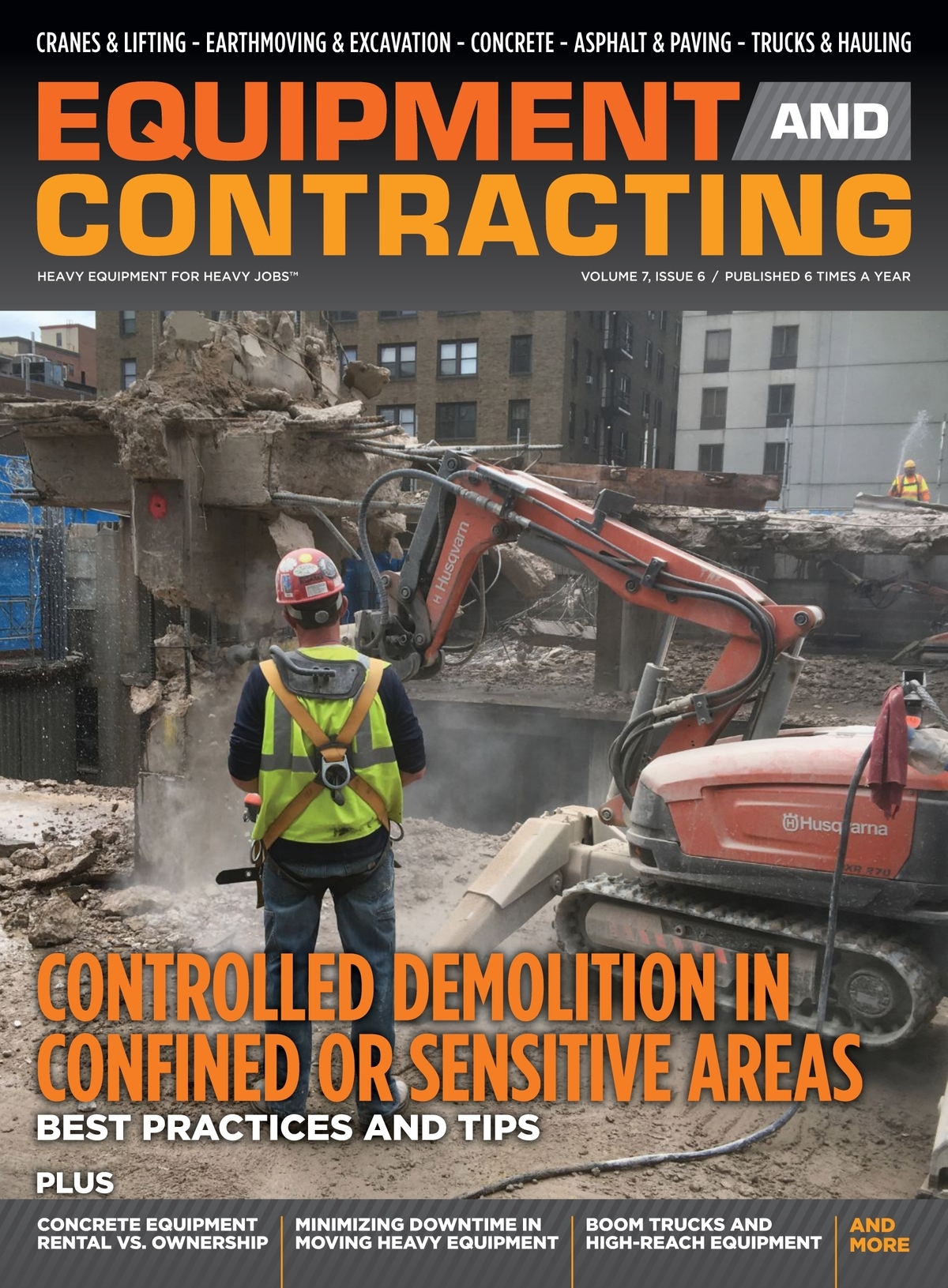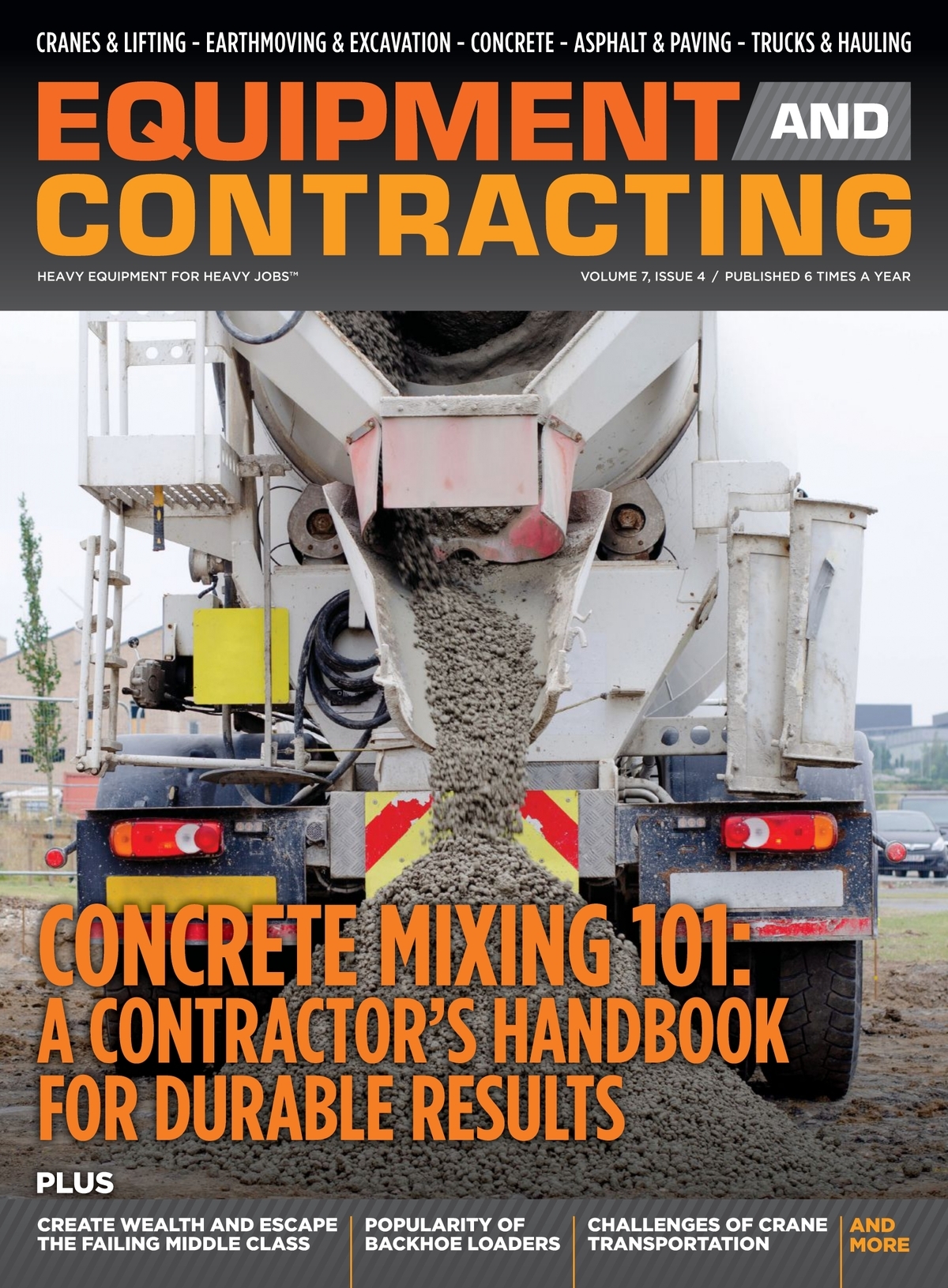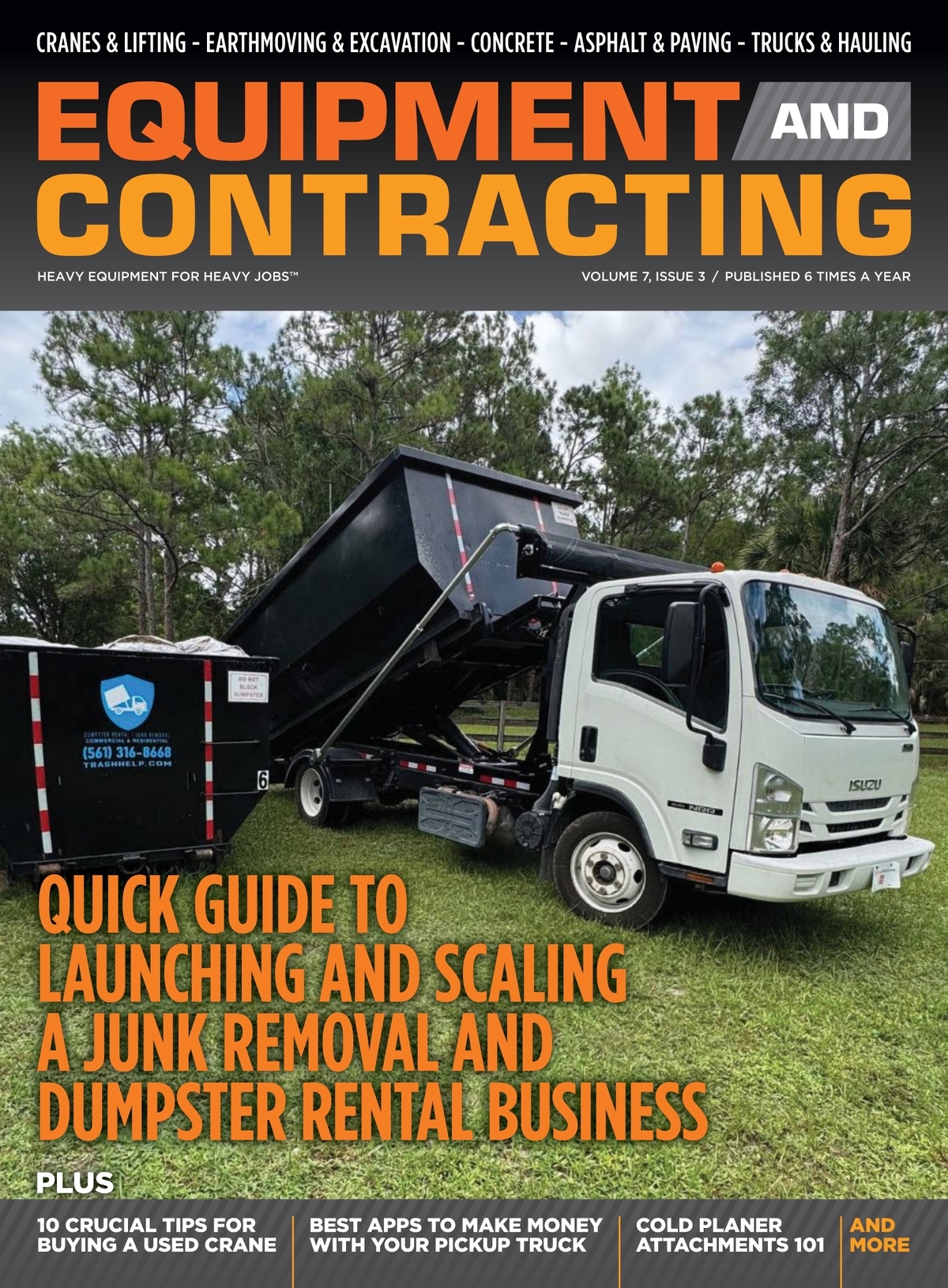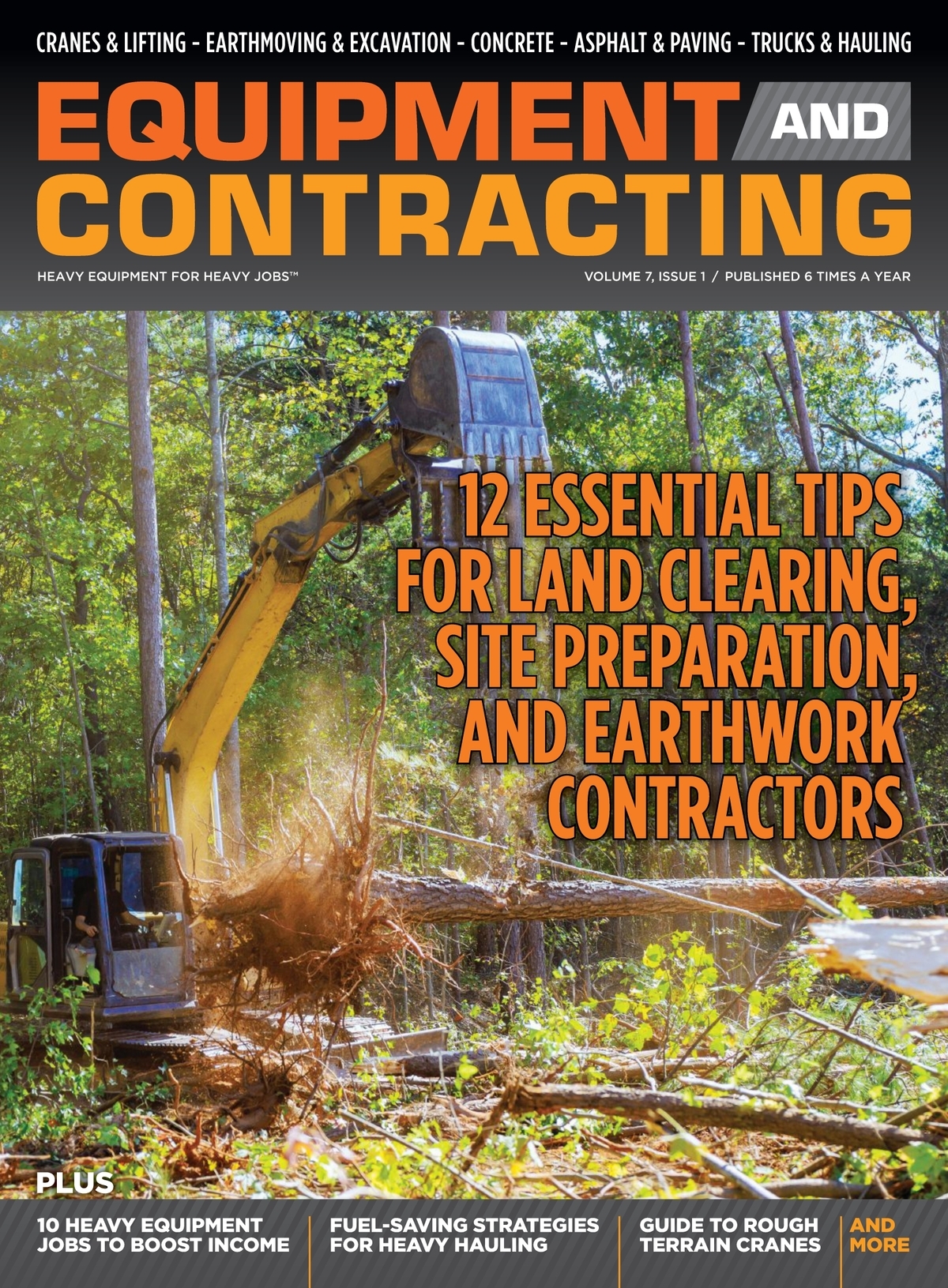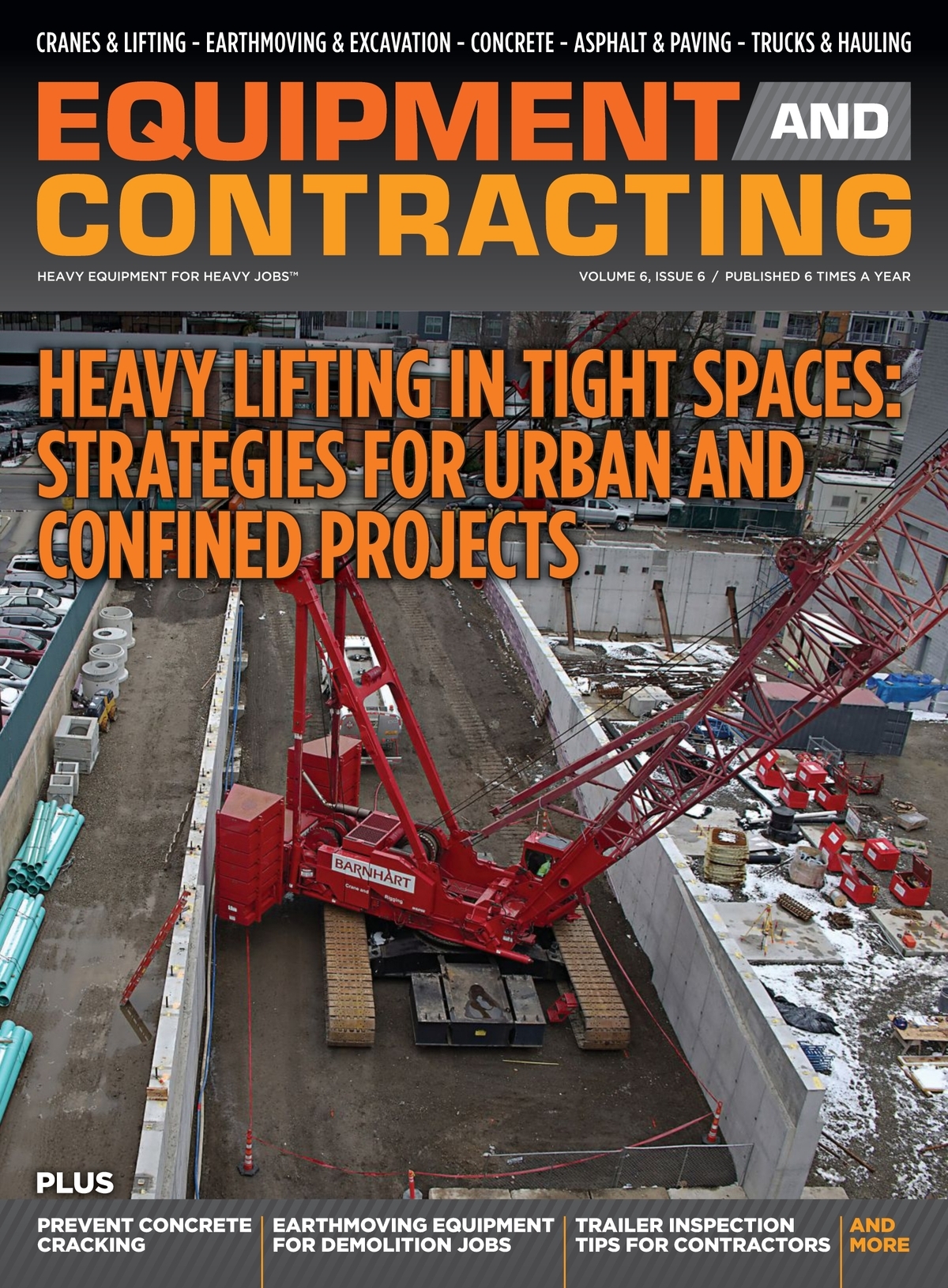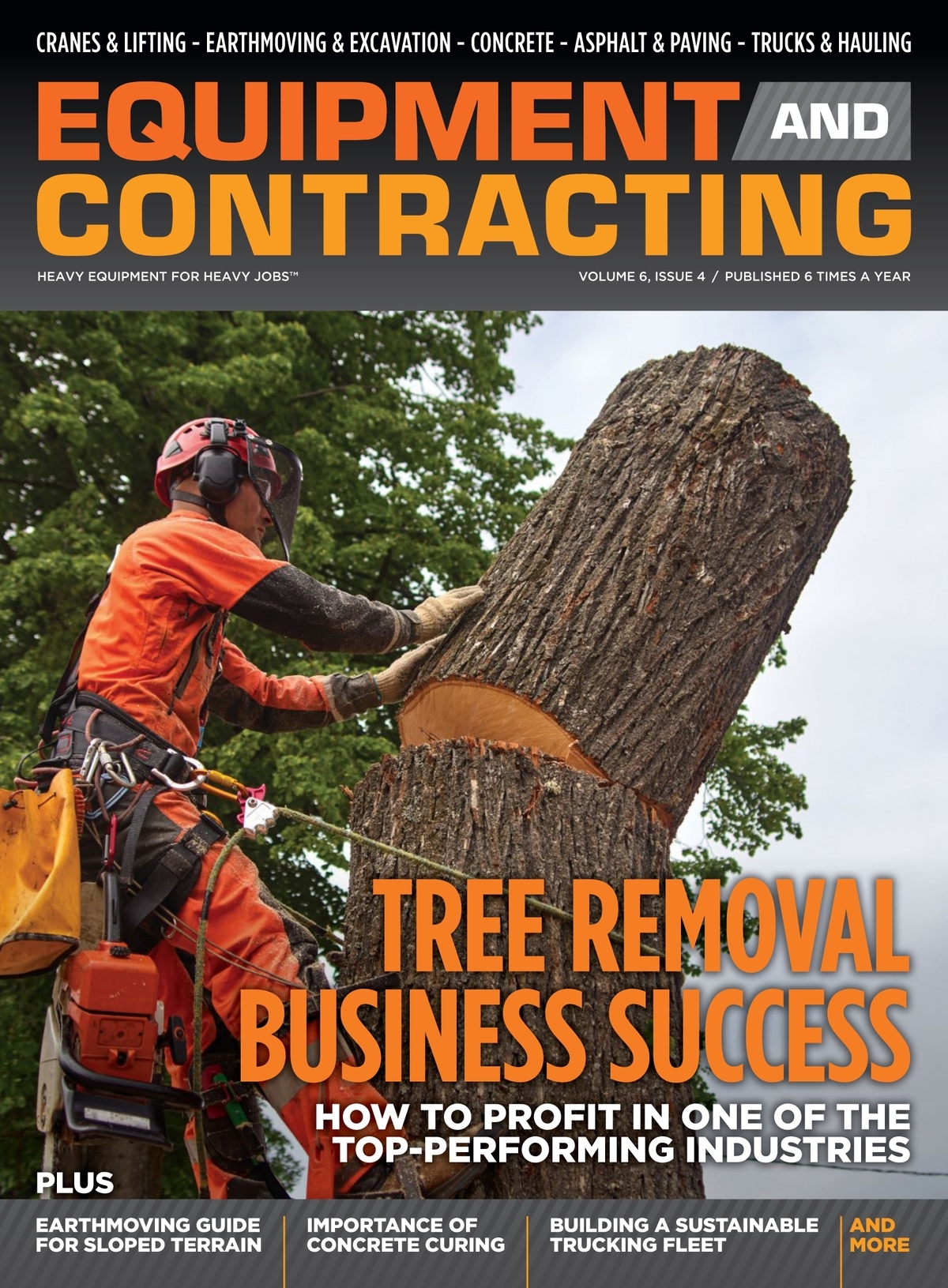
View the complete article here.
Who owns a buck truck business? Entrepreneurs. Tradesmen. Construction business owners. College grads. College dropouts. Retirees…. You own a box truck business… or at least you can.
If you work hard enough and manage your business properly, box truck businesses have the potential to make their owners millions of dollars—especially during this time. Box truck ventures are going to be some of the best-performing businesses in 2024, and we’re going to show you why and how in this article.
We’re going to cover the top reasons to start a box truck business, the step-by-step process to get started, the costs involved, the types of box trucks, regulations that you need to know, solutions to the problems you’re likely to encounter, and 10 ideas for a box truck business that we believe will be the most profitable in 2024.
What is a Box Truck Business?
A box truck—sometimes referred to as a cube truck, cube van, or even a box van—is a chassis cab truck with an enclosed cuboid-shaped cargo area. On most box trucks, the cabin is separate to the cargo section—but some models have a door between the cabin and the cargo area.
The primary function of a box truck is to transport various types of goods. Due to their size, they are particularly useful for transporting large items—while still being nimble enough to navigate through city streets and residential areas. Box trucks can also be found in a variety of sizes, typically ranging from 10 to 26 feet in length—depending on the requirements of the load they’re intended to carry.
Box truck businesses leverage these super-efficient vehicles to offer a wide range of services, including—but not limited to—moving services, delivery services, mobile retail, and much more.
The versatility of box trucks makes them an invaluable asset in many industries, as well as a significant source of income for savvy, hardworking entrepreneurs.

Reasons to Start a Box Truck Business
The transport and logistics industry has always played a pivotal role in trade and commerce, but major shifts have occurred in the last several years—especially in 2023, alone—that have made the box truck business one of the most significant and profitable businesses that hungry entrepreneurs can do.
The first reason to start a box truck business is the explosive growth of e-commerce. Unless you’ve been living on the moon the last decade, you must have noticed that e-commerce is blowing up—the landscape of retail has changed forever. Whether it’s furniture, a new TV, or a large toy—purchased goods are zipping around in box trucks around towns across America. Consumers expect their products faster than ever and with no hiccups, and the box truck is the perfect solution.
There’s also the dramatic shift towards the localized production of goods. Localized production of goods—including anything from craft beers to clothing to fresh bread—means that more manufacturers are moving away from basing their operations in one main location. Instead, they are choosing to produce their goods closer to their consumers. With goods being produced in multiple smaller locations, the need for box trucks to facilitate regional and short-distance transport has increased significantly.
And, of course, there’s the increased emphasis on faster deliveries to meet consumer demands. With the rise of e-commerce came the ‘instant gratification’ culture—both of which have conditioned consumers to expect quicker delivery times for their purchases. Box trucks, with their ability to navigate urban and suburban areas efficiently, are perfectly suited to address this demand.
We can go on-and-on with more reasons to start a box truck business, but we will only mention one more—a reason that is very important to you, who is reading this article… This reason is the low cost entry. Starting a box truck business does not require as significant an investment as some other transportation ventures. For example, semi-trucks or other large freight vehicles not only have steeper initial costs but also come with increased regulatory scrutiny, more expensive maintenance, and a need for specialized driving skills. Box trucks—on the other hand—are more affordable, easier to maneuver, and generally require standard driving licenses—making it easier for entrepreneurs to enter the market.
Box Truck Business Ideas
When it comes to the services you can offer with your box truck business, the sky is the limit—there are so many different ideas—some of which probably haven’t even been conceived yet. For this guide, we’ve put together a list of the ten ideas that fit the following criteria: they are the most profitable, have relatively low startup costs, and generally require minimal expertise. In other words, you don’t need four years of college to get started.
Delivery Services
For the box truck business owner offering delivery services, there are multiple lucrative sources of work available. Logistics companies, which manage the distribution of goods from suppliers to consumers, provide consistent job opportunities. Local businesses, from electronics shops to hardware stores, often need regular or on-demand delivery services for their stock or direct to customers. And, of course, the e-commerce boom ensures warehouses and online platforms are in constant search of reliable box truck services to handle bulk deliveries or sizable items efficiently. If you are willing to work hard and long hours, you can make a solid income offering delivery services with your box truck. Want to think bigger? Well, you can make a small fortunate once you are able to accumulate extra trucks and hire extra drivers.
Moving Services
The moving services arena is another vast market waiting to be tapped. Whether it’s residential homes, businesses, or seasonal college students—there are plenty of people willing to pay a box truck business to transport their goods. Not only is there a consistent demand, as well as a low initial investment, for offering moving services with your box truck—but there is huge potential to upsell your clients. Maybe you want to offer packing, unpacking, or even storage solutions to your clients. Whatever the case, offering moving services gets your foot in the door—fast.
Storage Services
On that note, offering storage services with your box truck is another excellent business idea—especially in densely populated urban areas where there are space constraints and square footage is at a premium. Acting as a mobile storage solution, your box truck can bridge this gap—offering a “way out” for businesses overwhelmed with excess inventory or individuals in the transition phase of moving. Whoever your clients are, you would be surprised by how eager—sometimes desperate—they are to hire someone as quickly as possible… no matter the cost.
Mobile Tool Rental
This is one of our personal favorites on the list. Converting your box truck into a mobile tool rental operation is clever, original, and an untapped niche that is likely to eventually explode in the future. Consider how many contractors and DIY aficionados don’t want to buy excess tools, or have lost or forgotten a tool on the day of an important job. You know what they always say—the best businesses are the ones that solve some sort of problem. Well, this box truck business idea solves a problem, and fast. Just remember to get those tools back, because we all know how it feels when you loan that tool out… and you never see it again.
Temporary Power and Lighting
Like mobile tool rental—offering temporary power and lighting is another unique, untapped niche for the box truck owner that we love. With your box truck outfitted with robust generators and advanced lighting setups, you become an indispensable asset for a variety of scenarios—from outdoor events like weddings to construction projects that extend into the night and need reliable lighting to maintain safety and productivity. And, don’t forget the critical demand for power and lighting during power outages. We hate to see anyone struggling, especially during emergencies, but just think about businesses who would be in dire need of your services—like an event planner, for example, who has lost power or lights and need it immediately.
Jobsite Cleanup and Waste Removal
Most people tend to think about construction but not the mess that is left behind. Jobsite cleanup and waste removal is an untapped niche that provides lucrative opportunities for your box truck business. With every completed construction project, there is inevitable debris and waste left behind—debris and waste that you can charge a premium to remove from the jobsite. Offering jobsite cleanup and waste removal typically requires relatively low overheads—mainly being waste disposal fees. Plus, there’s also the possibility of establishing long-term contracts with construction companies… This is where the big bucks are made.
Pressure Washing
Although the pressure washing market is a bit competitive—if you’re willing to work hard and have skills with marketing, a box truck proves to be an excellent base for a pressure washing operation. By equipping your truck with state-of-the-art pressure washing gear, you position yourself to serve both homeowners and commercial establishments—two massive markets. So, there’s no shortage of work out there if you hunt for it.
Auto Detailing
Like pressure washing, auto detailing is another competitive market, but the rewards can be significant if you run a tight ship. Consider how many vehicle owners would rather have their car detailer come to them instead of having to drive a distance to wait… and wait. By offering meticulous cleaning, waxing, and careful detailing from the convenience of your truck—you position yourself to attract professionals and owners of high-end vehicles who are willing to pay a premium if you offer consistent, solid work.
Safety Equipment Supply
We mentioned earlier how businesses are willing to pay a premium when they need something urgently. Well, this is certainly the case with safety equipment. By outfitting your box truck with a diverse range of safety gear, including everything from hard helmets and safety vests to safety boots and eye protection, you position yourself as a one-stop solution for businesses like construction sites, manufacturing plants, and event venues. If you want to increase your revenue, why not consider upselling your clients? Maybe they are willing to pay for safety training workshops or safety audits and consulting?
Advertise with Your Truck
The expansive sides of a box truck provide a perfect canvas for advertisements, making them prime real estate for local businesses or event promotions. By turning your truck into a roaming billboard, you’re opening up a new avenue for passive income. If you can float the bill for a few box trucks, consider how little effort it would require on your part if you hired a few drivers to do the work for you? And, once you start building relationships, establishing long-term contracts with various clients will ensure a steady inflow of revenue.

Step-by-Step Process to Start a Box Truck Business
Don’t worry… We’re not going to get into every little detail about starting a business, like how to fill out a form or how to create a website. There is a time and place for that, and it’s not now. For all of that nitty-gritty—but still important—information, check out the Heavy Ape course. It will teach you everything you need to know to start—and, more importantly, how to scale—a trade business.
With that out of the way—let’s go over the basic fundamentals to get your started right away…
1. Launch Your Business on Paper
We know you want to hit the road and make some money, but it’s crucial you take care of the less-glamorous details and establish a solid administrative foundation before getting your hands dirty. This includes obtaining your EIN, or Employer Identification Number, from the IRS. This EIN number will be necessary for tax filings and future employee hiring. You’ll also need to choose an appropriate business structure, like an LLC or sole proprietorship, to determine liability and taxation. You’ll need a dedicated business checking account. And, you’ll need to acquire necessary local permits and specialized licenses. Again, we recommend taking the Heavy Ape course, or—at the very least—speak to an attorney to make sure you have everything covered.
2. Choose Your Box Truck Business Niche & Conduct Market Research
Whether it’s moving services or offering storage to your clients—once you are 110% certain about the niche you’re going to target, it’s important to engage in some market research. Who is already successful in your market, and why? Who are your competitors, and what do they offer exactly? Equally vital is recognizing your potential client base. Who are they? What are their needs and preferences? Gathering all of this market research is paramount. Not only will this knowledge allow you to fine-tune your services to give your customers what they truly want, but if you leverage this information you will have an advantage—an edge—over your competition in a potentially-crowded market.
3. Acquire Your Box Truck, Insurance, and Related Equipment
It’s now time to secure your primary asset… the box truck. The decision to buy or lease depends on your financial strategy: generally speaking, buying offers long-term savings, while leasing reduces initial costs. Whatever you decide to do, ensure your truck’s type and size match the specific need of your chosen service niche. For example, if you’re venturing into the mobile retail space—a larger box truck might be necessary to accommodate product displays and allow customers to browse comfortably. On the flipside, for more streamlined operations like document delivery—a smaller, more agile truck might be more appropriate. And, it’s crucial that you take insurance seriously. Not only will it protect your investment, but it shows clients that you are professional.
4. Find Jobs and Develop a Pricing System
Now, you’re geared up and ready—but this doesn’t mean anything unless you’ve got clients. Depending on the type of box truck business you have, you’ll likely want to start by reaching out to local businesses that are in need of your services. For example, if you’re focused on delivery services—local furniture stores or appliance retailers might require assistance in transporting their goods to customers. If you’re into mobile tool rental, construction sites or DIY workshop organizers might be your initial targets. Just remember—as potential jobs begin to line up, you’ve got to devise a clear and competitive pricing structure. Pricing is a bit of an artform that you’ll develop over time, but a good place to start is by comparing your rates with other rates in your region—while keeping your operating expenses in mind, of course. Again, we can’t stress enough—take that Heavy Ape course, which will teach you how to bid and price jobs like a pro.
5. Market and Promote Your Business
As the case with most successful trade businesses, most box truck businesses are so successful that they no longer find it necessary to spend money promoting their business. But, everyone was at the beginning at some point… When you’re starting out, making sure your box truck business is recognizable, with a solid reputation, is a game-changer. Depending on the specific niche you’re targeting with your box truck business, there are various ways to market and promote your services. For example, if you’re offering temporary lighting and power, consider partnering with event organizers or construction site mangers—offering introductory rates or packages deals to get their immediate attention. Or, if you’re offering moving services, maybe you want to connect with real estate agencies and property managers. Whatever the case, contrary to popular belief, you don’t necessarily need a large budget to get your business in front of the right eyes. Being clever and resourceful can take you far with a box truck business.
6. Responsibly Manage Your Finances
One of the biggest mistakes a box truck business owner makes is neglecting finances. The most successful box truck businesses are constantly monitoring the financial health of their business by analyzing earnings, managing expenses, and carefully determining profit margins. These days, we’re pretty lucky, because there is a lot of great software out there that can simplify the accounting part of a business. And, of course, you can always enlist the expertise of a bookkeeper or accountant. Whatever route you take, just be sure you are carful and humble with the handling of your finances. If you fail to do so, the consequences are likely to be disastrous… like losing your entire business.
7. Properly Scale Your Business
Scaling a business doesn’t just mean “growing a business.” Scaling a business refers to the ability of a business to handle increased demand and grow its operations without compromising performance or revenue. In other words, it’s about expanding efficiently. For a box truck business, maybe this involves increasing the number of trucks in your fleet, adding and diversifying your services offered to clients, or expanding into new geographical areas. Scaling is crucial to growing a box truck business that generates millions per year—just don’t forget that decisions should be made on thorough market research, financial analysis, and the overall health of the business.
Costs Involved with a Box Truck Business
Launching a box truck business doesn’t have to be expensive, but you should be prepared to make some sort of investment. From acquiring the right vehicle to meeting regulatory compliance, costs can add up if you’re not careful. Here are some expenses that you should expect…
Of course, starting a box truck business requires an upfront investment—which is mainly dedicated to the purchase or lease of the truck itself. While a brand-new truck offers the benefits of the latest features and fewer immediate maintenance concerns, it comes with a higher price tag. On the other hand, second-hand trucks are more cost-effective upfront but may present wear-and tear-issues. In addition to the truck, there are other initial costs to consider like obtaining necessary licenses and permits.
Once the business is operational, regular maintenance becomes a critical, recurring expense. This maintenance may entail routine activities such as oil changes, tire rotations, brake inspections, and other preventive measures to ensure the truck’s longevity and optimal performance.
Insurance is non-negotiable when running a box truck business, serving as protection against potential liabilities—from vehicular accidents to damage of goods. Costs for insurance policies vary—influenced by factors like the size and use of the truck, its operational zones, and more. While it may be tempting to opt for the cheapest option, it’s essential to ensure comprehensive coverage—as inadequate insurance can result in much higher costs in the event of accidents or legal complications.
Day-to-day business activities come with their set of expenses. Operational costs like fuel consumption remains at the forefront—with charges for tolls, parking, and other travel-related expenses adding to the tally. For this reason—it’s crucial to factor in efficient route planning, fuel-efficient driving techniques, and any other solutions to operate your box truck business as efficiently as possible.
For those who choose not to personally operate their trucks, it will be necessary to hire drivers. Regarding the ongoing expense of wages, it’s imperative to offer solid compensation to attract skilled drivers. If this crucial ingredient to your box truck business is ignored, it’s highly unlikely that you will deliver consistent and quality service to your clients.
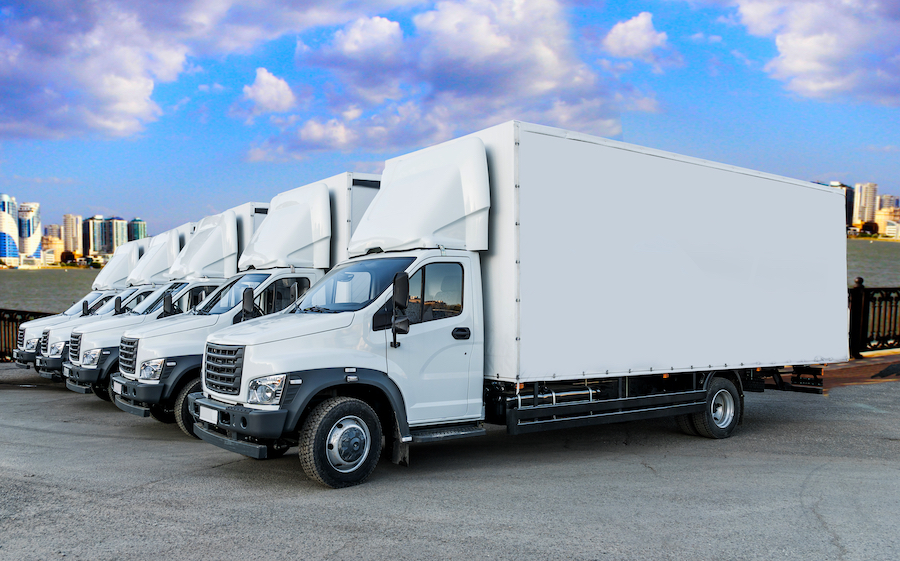
Box Truck Specifications and Varieties
Box trucks, often recognized for their cube-shaped cargo area, come in an array of sizes and types—each designed to meet specific hauling needs. Understanding these variations is necessary for an aspiring box truck business owner, as the choice can significantly influence the range and efficiency of services offered.
The most common box truck specifications and varieties includes…
Light-duty box trucks (10-14 feet) are best suited for navigating through city streets and tight spaces. Their smaller size makes them ideal for short-distance deliveries and moves. These trucks are ideal for local delivery and small-scale moving services.
A middle ground in terms of size, medium-duty box trucks (15-20 feet) can handle a larger volume of goods but still remain relatively nimble for urban and suburban routes. These trucks are ideal for mid-sized moving jobs, delivery for businesses like furniture or appliance stores, and event equipment transportation.
With the largest cargo space, heavy-duty box trucks (21 feet and above) are tailored for hauling substantial amounts of goods over longer distances. These trucks are ideal for large-scale moves, bulk deliveries, transporting construction materials, or mobile businesses that require ample space—like mobile showrooms or retail spaces.
Equipped with cooling units, refrigerated box trucks maintain a specific temperature inside the cargo area. These trucks are ideal for transporting perishable goods like food, flowers, or pharmaceuticals.
Specialty box trucks come equipped with specific modifications—such as lift gates, side doors, or built-in ramps. These trucks are ideal for niche services that require special loading or unloading provisions, catering to specific industries or tasks.
Regulations and Compliance for Box Truck Businesses
Every state or country often has its own set of regulations and compliance—especially when it comes to weight limits, emissions standards, and operational guidelines. For example—weight limits vary to ensure the safety of roadways and bridges, while emissions standards aim to reduce environmental impact. Whatever the case, it’s crucial for box truck business owners to stay informed about these local regulations and ensure they remain compliant to avoid consequences like penalties or business disruptions.
You must also consider licensing. In many regions, operating larger box trucks may require a Commercial Driver’s License (CDL) or another specialized license. It’s important to research the specific requirements in your area and ensure that you, or your drivers, have the necessary certifications to operate legally and safely. This not only ensures you’re running a legitimate box truck business, but it also instills trust in your clients and partners.
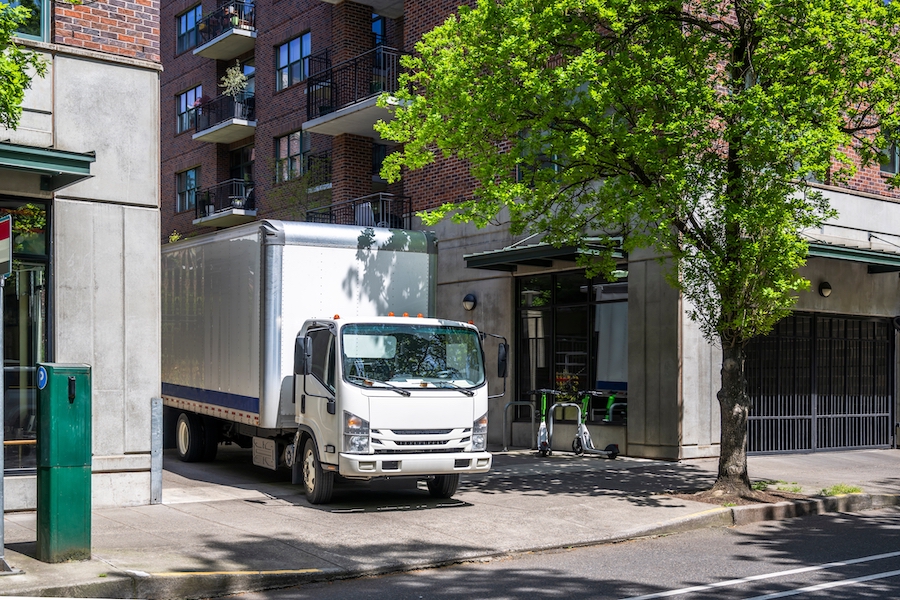
Box Truck Business Problems to Anticipate
Regardless of its nature, every business encounters its share of challenges—and the box truck business is no exception. Whether it’s breakdowns, fluctuating demand, conflicts with clients, or your basic operational issue—a box truck business owner needs to be prepared to handle any obstacle that presents itself. Some of the most common problems of a box truck business include…
Breakdowns
One of the most common challenges in the box truck business is vehicle breakdowns. This unavoidable hurdle can cause service interruptions and result in missed deadlines, both of which are harmful to your reputation. So, what can you do to avoid breakdowns? At the very least, regular maintenance checks are essential to minimize these unexpected hitches. In addition, it’s always a good idea to have a reliable mechanic on speed dial—as well as having a contingency fund set aside for emergency repairs.
Fluctuating Demand
The demand for box truck services can be influenced by a variety of factors—including seasonal changes, shifts in the economy, and local events like sports events or tradeshows. If this fluctuation happens to impact your revenue streams—you may want to consider diversifying the services that you offer, branching into other niches during off-peak periods, and building strong ties with regular clients to ensure a steady flow of business.
Client Conflicts
Misunderstandings and disagreements with clients, while unfortunate, are likely to occur at some point in your career as a box truck business owner. Whether these conflicts arise from unclear job expectations or are just random miscommunications, the key is to always ensure clear communication from the beginning. The more clear you are starting off—especially with written contracts—the stronger your case will be if there should be any sort of conflict with a client.
Operational Issues
Delivery can be affected by all sorts of operational challenges, including anything from disrupted routes caused by unforeseen events to complexities in booking management. A box truck business owners needs to have the ability to adapt to any situation. In addition—you may want to consider utilizing route-planning software, having a reliable scheduling system in place, and investing in training for your team.
Final Thoughts
We put as much as we could into this guide, but the most successful box truck business owners never stop learning. Like any business venture, the best way to learn is to get out there and get your hands dirty. Don’t be afraid to make mistakes. Trust yourself. And, most importantly, work your butt off.
View the complete article here.
What are the key reasons to start a box truck business in 2024, and how does the growth of e-commerce contribute to its profitability?
The explosive growth of e-commerce, localized production of goods, and the demand for faster deliveries make the box truck business highly profitable in 2024.
What challenges can be expected in running a box truck business, and how can a business owner address common problems like breakdowns and fluctuating demand?
Challenges include vehicle breakdowns and fluctuating demand; addressing these issues requires regular maintenance, having a contingency fund, diversifying services, and maintaining clear communication with clients.

